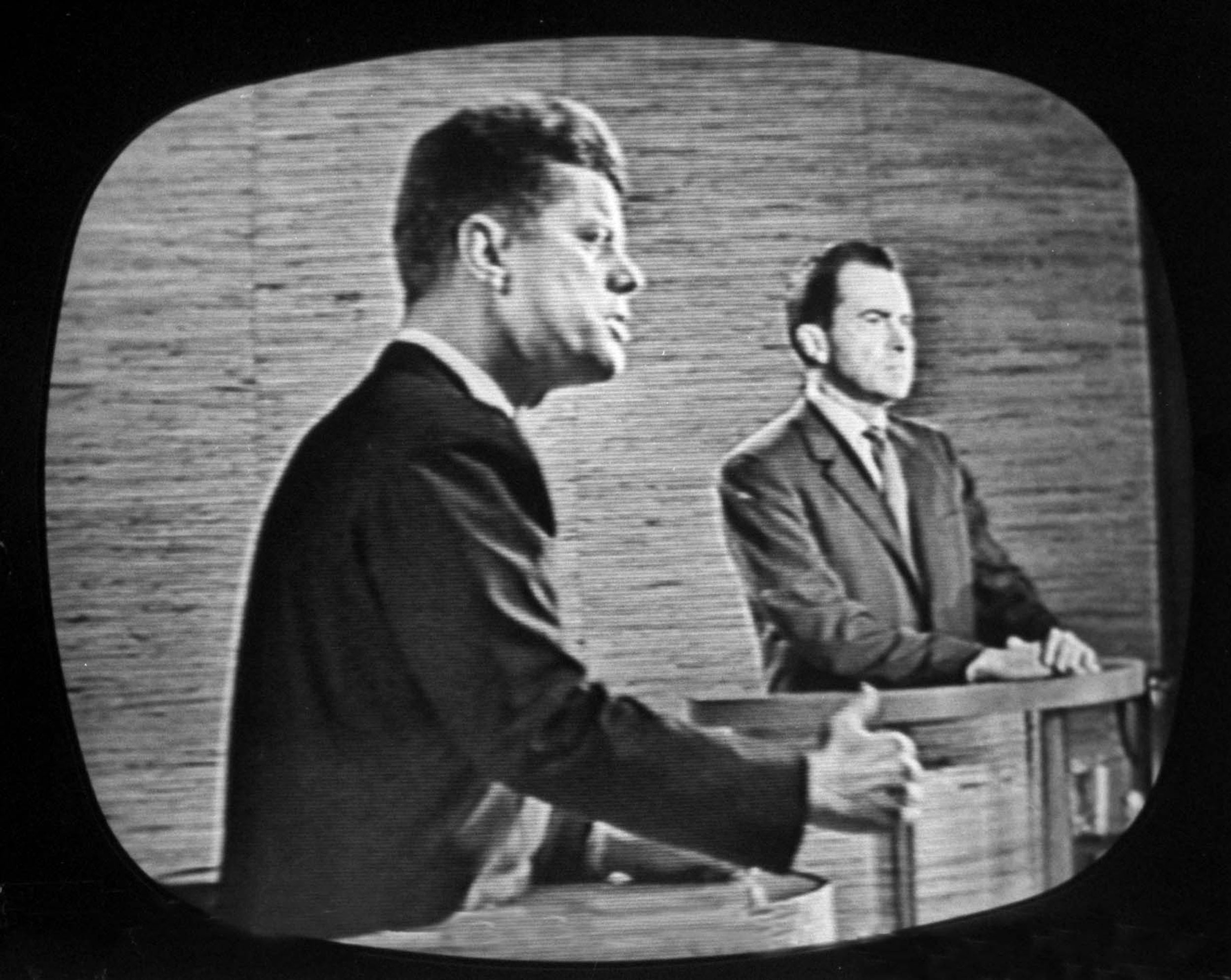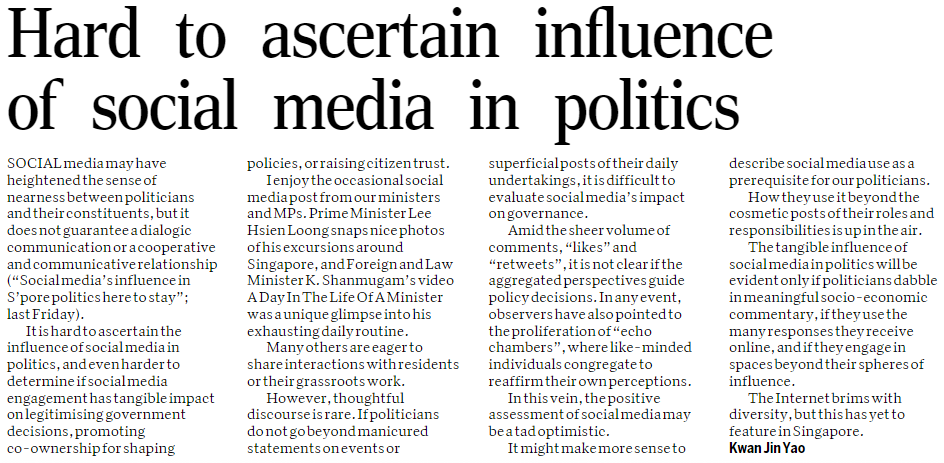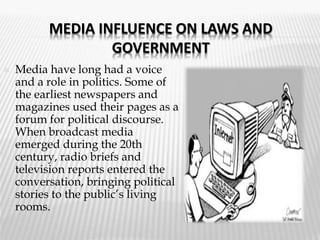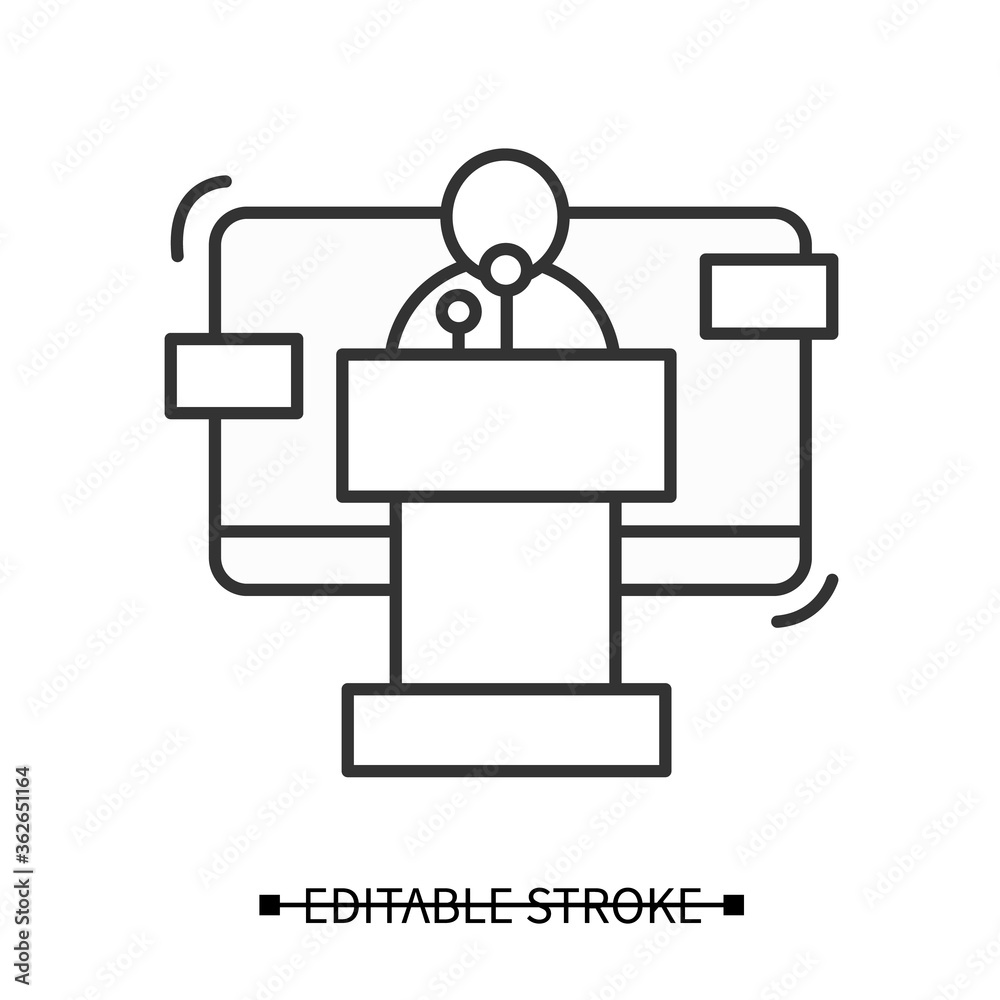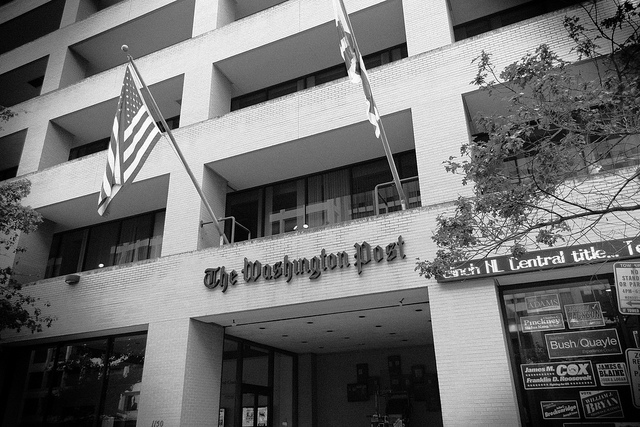Media influence on politics and government is a complex and multifaceted phenomenon. On the one hand, media serves as a platform for political actors to communicate with the public and shape public opinion. On the other hand, media can also shape the political landscape itself, through its coverage and framing of issues, events, and individuals. In this essay, we will explore some of the ways in which media can influence politics and government, both positive and negative.
One way in which media can influence politics and government is through the coverage and framing of issues. By choosing which issues to cover and how to present them, media outlets can shape the way the public understands and prioritizes different issues. For example, if a media outlet consistently covers a particular issue in a negative light, it can create a negative public perception of that issue, potentially influencing the decisions of politicians and policymakers. Conversely, if a media outlet consistently covers an issue in a positive light, it can create a positive public perception of that issue and increase the likelihood of policy changes or political action.
Another way in which media can influence politics and government is through its coverage of political candidates and elected officials. By providing extensive coverage of a particular candidate or elected official, media can help shape public opinion of that person and influence the outcome of an election. For example, if a media outlet provides positive coverage of a candidate, it can help boost their public image and increase their chances of winning an election. On the other hand, if a media outlet provides negative coverage of a candidate, it can damage their public image and decrease their chances of winning.
Additionally, media can influence politics and government through its ability to shape the narrative around events and issues. By choosing which events and issues to cover, and how to cover them, media can shape the way the public understands and interprets what is happening in the world. This can be especially powerful in times of crisis or political upheaval, when media coverage can shape the way the public understands and responds to events.
However, media influence on politics and government is not always positive. There is a growing concern about the role of media in spreading misinformation and propaganda, which can have negative consequences for democracy and governance. In today's digital age, it is easier than ever for individuals and groups to spread false or misleading information through social media and other online platforms. This can lead to the spread of conspiracy theories and other forms of misinformation, which can damage public trust in government and erode the foundations of democracy.
In conclusion, media plays a significant role in influencing politics and government. It can shape the way the public understands and prioritizes different issues, influence the outcome of elections, and shape the narrative around events and issues. However, it is important to recognize the potential negative consequences of media influence, such as the spread of misinformation and propaganda. It is important for media outlets to be responsible in their coverage and for individuals to be critical consumers of media, in order to ensure that media influence is used for the betterment of society.
